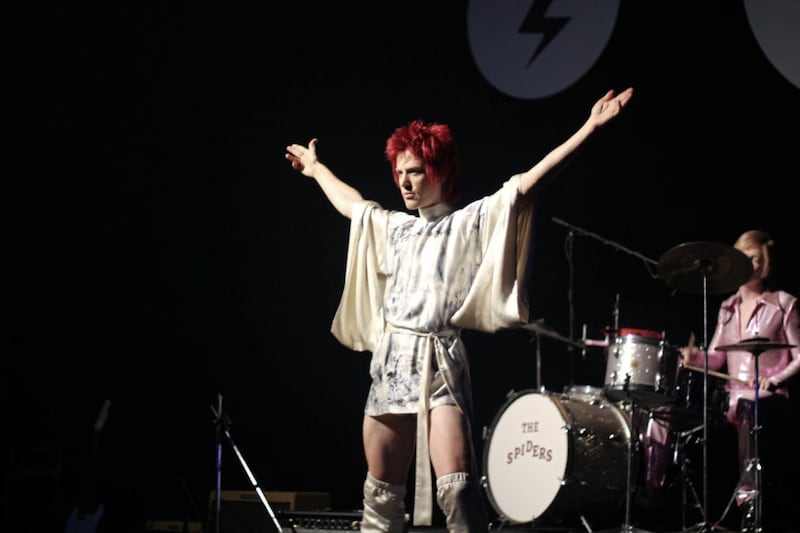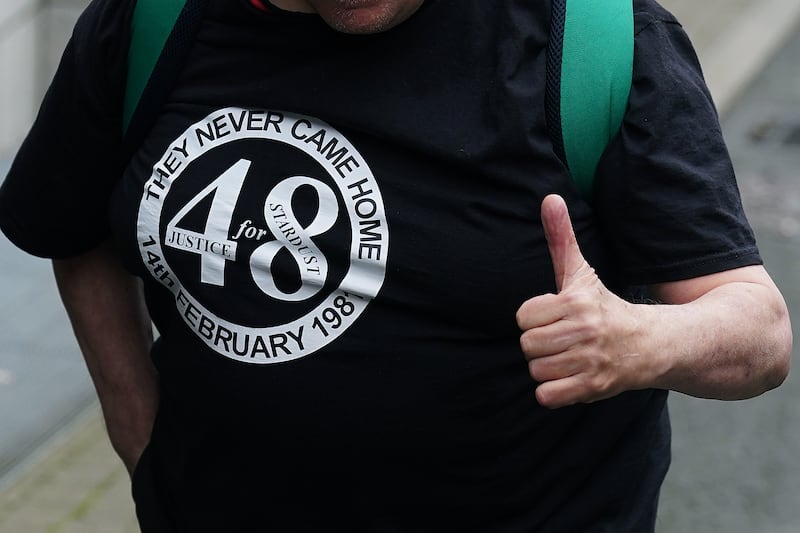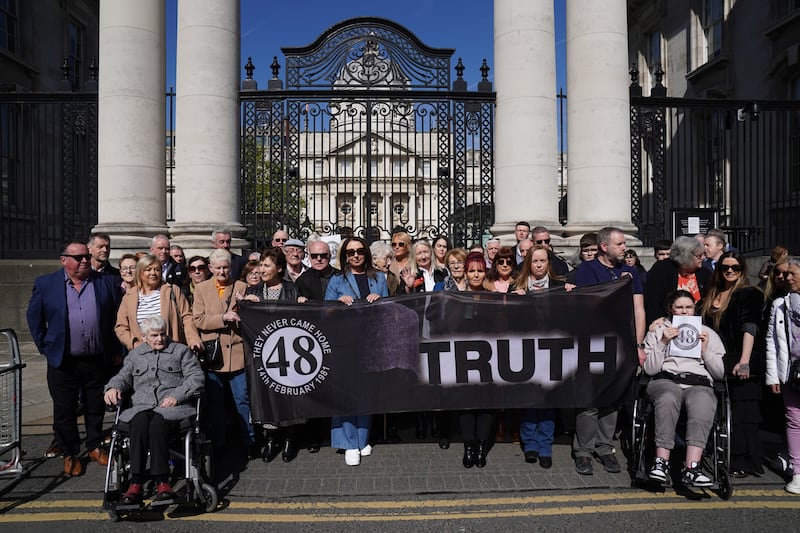JOHNNY Flynn always knew taking on David Bowie in a film would be a challenge. He was so sure it was a bad idea that the actor and singer-songwriter, best known for his roles in Beast, Emma and Lovesick, almost dismissed it out of hand.
“I had been sent a version of the script well before Gabriel [Range, the director] came on board and, even without reading it, I thought this can’t be done, because David had this image that was untouchable,” Johannesburg-born Flynn (37) says as we chat over Zoom.
“But I read the script that Gabriel was starting to develop, which was a bit more in line with how he saw the film, and then I met him in New York – I loved his vision.
“What he was saying flipped that whole sense of this rock god on a pedestal, the idea of David that we all have, on its head and really focused on this prism of a moment, through which we could really understand him and his soul.”
The product is Stardust, a film that focuses on Bowie not at the height of his Ziggy Stardust fame, but when he was on the brink of total failure, on his first trip to the US in 1971.
Rather than the jukebox musical we have come to expect from recent years, with the success of films such as Bohemian Rhapsody and Rocketman, Stardust is a smaller, quieter road movie about an artist trying to make it but feeling like the odds are against him.
“I think we have been conditioned by those big sprawling jukebox musical biopics,” Flynn says, “but it wasn’t that long ago when there was a spate of films like Control [starring Sam Riley as Joy Division singer Ian Curtis], and a few others about musicians, that for me were much more interesting and looked at tiny moments in people’s lives that allowed you to understand them on a psychological level much more profoundly.
“And I thought, ‘Well it’s time to do that with David’, and this moment in his life is such an interesting way to understand him, after a string of failed singles, his album is not doing well, he hasn’t got the right paperwork [to enter the US], he’s the opposite of what we think of him as.

“He’s essentially a failure at this point and also won’t talk about these dark themes of his record and where does that all come from, the things he’s running away from and feelings of being an impostor.
“When you notice him talking in this period you realise that is who he really was, so I just found all of that really interesting, and as soon as I met Gabriel I realised it was something really worthwhile.”
When the trailer came out it was met with scepticism by Bowie fans, especially when his son Duncan Jones said the film was made without access to Bowie’s music and without the blessing of his estate. Flynn is circumspect about this.
“In this age of Twitter and knee-jerk reactions and people grabbing on to headlines and Chinese whispers happening, I knew that we would have to get this really, really right because of the circumstances of these recent biopics, and the story that we were doing was without the estate’s blessing on using the music and things like that – not that we ever wanted that, but I knew that we had to tread very carefully.
“As was bound to happen, some of that stuff has been taken out of context so people have had a very millennial, online reaction to it.
“But I’m just excited that the film will be seen now and that it can speak for itself because I knew that there was always going to be contentiousness around the idea of a film and that there would be a conversation around it, but the balance of what needs to be said will happen once people can actually see the film.”
Range nods in agreement. “There is a sense because of movies like Rocketman and Bohemian Rhapsody, there was a natural expectation that this was going to be that, only in this case without his music, which doesn’t make much sense,” the director says.
“Why would we bother doing that? And the American distributors cut a trailer that was very much for the American market and probably didn’t help in that regard, because it probably positioned it and put a little too much focus on David as Ziggy, which is really not what the film is, it’s about how he gets there rather than the destination.
“Vertigo [the UK distributor] have done a great job of cutting a trailer that I think much better represents what our film is, which is a small, quiet, intimate look at a young man setting out on this musical journey.”
The film has some thoughtful and unexpected parallels with the world we are living in today.
The day we are speaking is shortly after Harry Styles appeared on the cover of US Vogue, posing in a pale blue lace Gucci ballgown and black tuxedo jacket.
The controversy this sparked (one conservative commentator demanded “bring back manly men”) is reminiscent of the scene in Stardust when Bowie faces consternation at the US border over the fact he has a dress in his luggage.
“I found that hilarious, reading that people were objecting to Harry Styles wearing a dress,” Flynn says.
“History and ideas are cyclical and we are living through a period that is terrifyingly reminiscent of the rise of right-wing politics in the 30s and that is the value in looking at history, even recent history.
“This is 1971 and David Bowie going to America, and human beings haven’t really changed in what their leanings are and here is somebody trying to do something bold at a time when this was kind of being shut down.
“But he is also trying to innovate in a sea of innovators, and how does he do something so spectacular from this arena where there are loads of people doing spectacular things from 1967 to 1971?
“There are all these incredible voices emerging and he feels like he’s drowning, and then he smashes together these things and is one of the biggest innovators of this period.
“We are now in a period of cancel culture again and Harry Styles wearing a dress and being shouted down by the small islanders means that this story is valid again – somebody who is trying to do something amazing and profound and put together these different artistic movements in an innovative way.
“We need to look back at people like David Bowie and his genesis to inspire ourselves to provide the next generation of fantastic artists – that was the thing I held on to while making the film.”
:: Stardust is out now on premium video on demand (PVOD).








